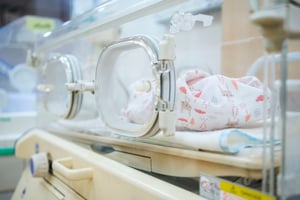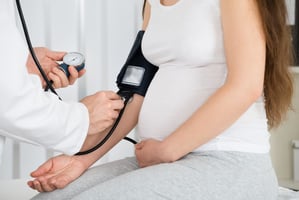Prescribing Lithium During Pregnancy Requires Careful Balancing of Benefits, Risks
 |
“Pregnancy should not be considered an absolute contraindication to lithium prescription, given the relatively small increase in risk for any malformation or cardiac malformations, and given that such events, fortunately, remain rare,” wrote Michele Fornaro, M.D., Ph.D., of the University of Naples Federico II School of Medicine and colleagues. In comparison, women with bipolar disorder who are not in treatment may experience frequent relapse of mood episodes during pregnancy and the postpartum period. These episodes themselves can harm the health of the mother and the fetus or newborn.
Fornaro and colleagues compiled data from 29 studies that assessed the efficacy and safety outcomes of lithium treatment during pregnancy and the postpartum period. They found that lithium exposure was not associated with any risk of preterm birth or low birth weight. Compared with women who were not prescribed lithium, however, those who took lithium any time during pregnancy had 1.81 times greater odds of giving birth to a child with a congenital defect and 1.86 times greater odds of giving birth to a child with a cardiac birth defect; these risks were slightly higher for women who started taking lithium in the first trimester (1.81 times for any congenital defect and 1.96 times for a cardiac defect). Women who took lithium in the first trimester also had 3.77 times greater odds of a miscarriage. When the comparisons were limited to women with bipolar disorder, however, women who took lithium did not have any increased risk of miscarriage compared with those who did not, and no increased risk of cardiac birth defects when lithium was taken in the second and/or third trimester.
Women with bipolar disorder who took lithium were 84% less likely to relapse during the postpartum period than women with bipolar disorder who did not take lithium during pregnancy.
To read more on this topic, see the Psychiatric News article “How to Manage Meds Before, During, and After Pregnancy.”
(Image: iStock/serezniy)
Follow Psychiatric News on Twitter!
And check out the new Psychiatric News Brief on Alexa-enabled devices.
And check out the new Psychiatric News Brief on Alexa-enabled devices.





